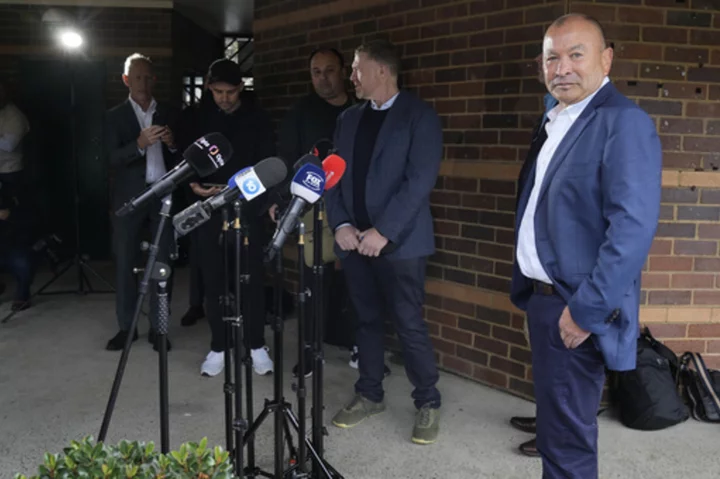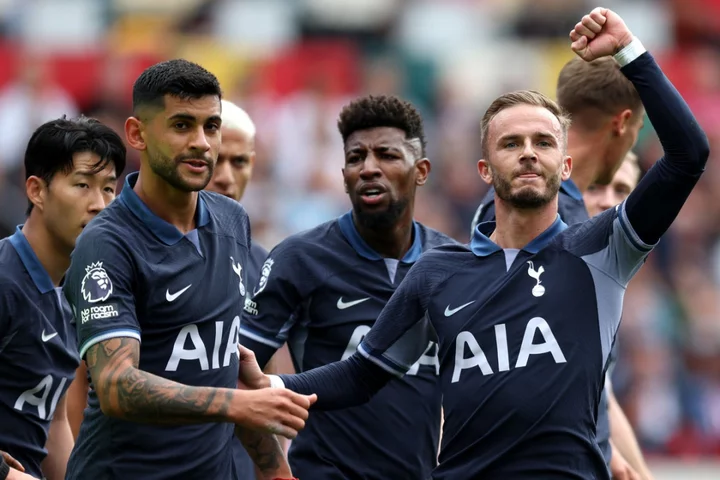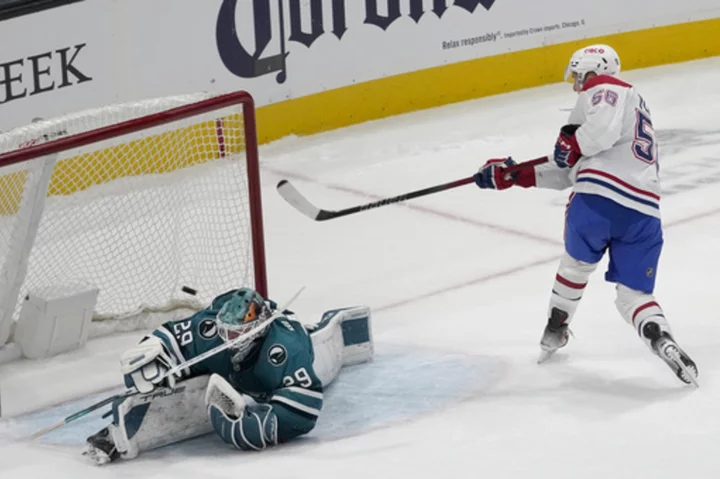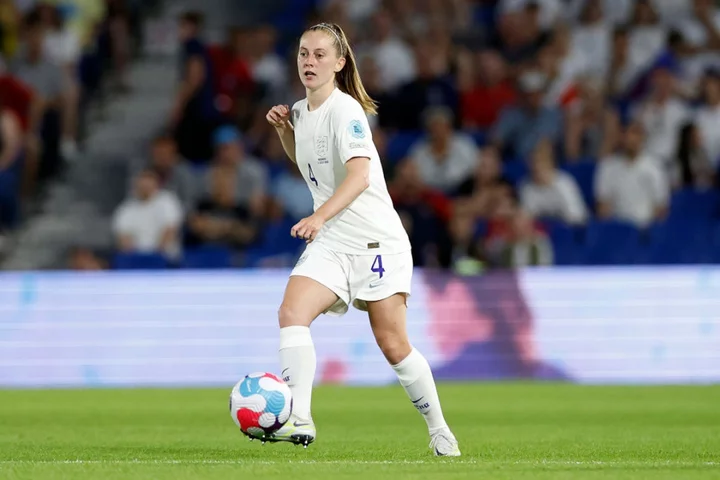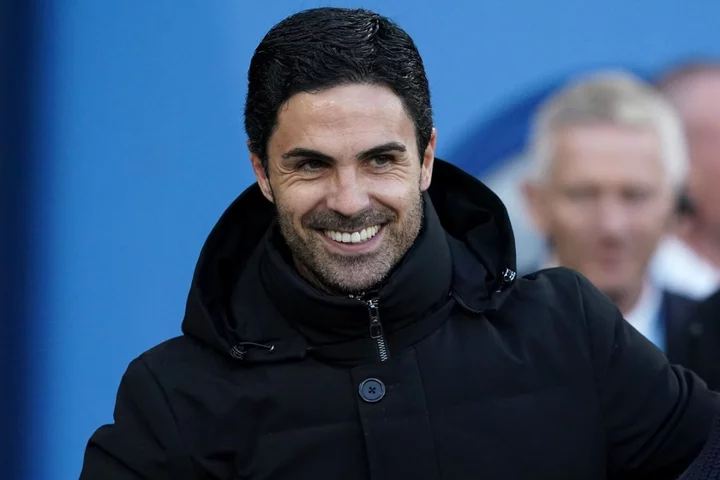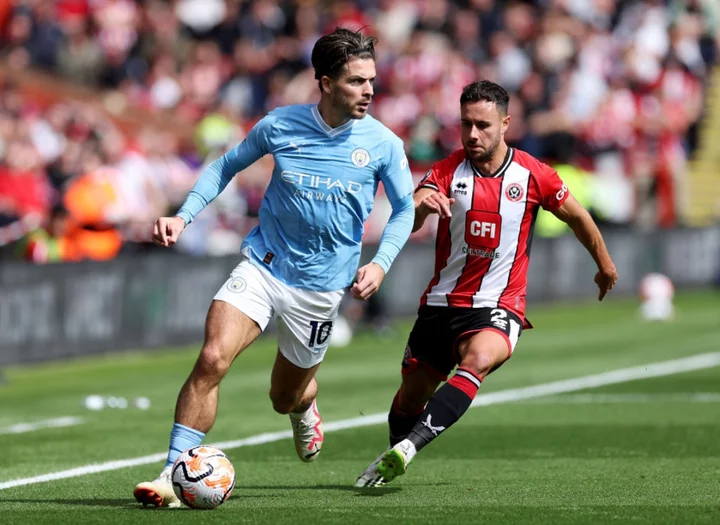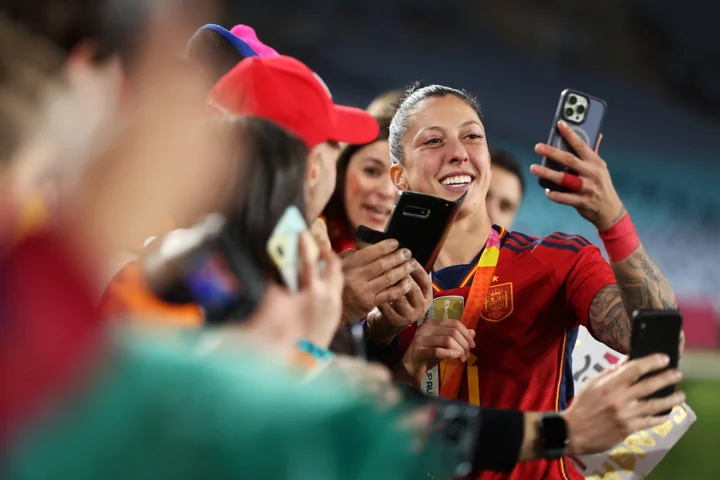More than 36 hours after Eddie Jones revealed he was quitting as Wallabies coach, Rugby Australia confirmed his departure on Tuesday and said the organization would conduct a thorough search for his replacement, “however long it takes.”
Rugby Australia chief executive Phil Waugh also said at a later news conference in Sydney that his group had negotiated a “sensible outcome” with Jones, without providing further details.
Waugh, a former Wallaby forward, said he didn’t believe he needed to contact his counterparts at Japan Rugby Football Union to find out whether Jones had conducted interviews for their vacant head coaching role.
During the Wallabies' dreadful Rugby World Cup campaign, where they failed to advance from the group stage for the first time, Australian media reported that Jones had interviewed for the job in Japan.
“I genuinely don’t think that level of inquiry is required of me. I have a very good relationship with all national unions, including Japan, I took Eddie at his word,” Waugh said Tuesday. “I don’t think it changes the position where we’re at now, whether Eddie was to stay or go.”
When asked whether Rugby Australia chairman Hamish McLennan would leave his position, Waugh said it was not his place to comment, but admitted “the board takes ultimate responsibility” for the performances of Australian rugby.
“We’ve got a lot of ground to make up in building trust with our stakeholders and the community,” Waugh said. “We feel the pain, we feel like we’ve let them down.
“Our focus will be reconnecting with the Australian public rather than where Eddie’s going to be. It’s been pretty disappointing and we’re all responsible.”
Jones quit only 10 months into a five-year contract, on the back of Australia's group-stage losses to Wales and Fiji in France. Rugby Australia had issued repeated assurances that Jones was fully committed to the Australia role in the face of reports their senior coach had met officials to discuss returning to Japan.
“I feel disappointment about the fact that what we wanted to do in terms of changing the system hasn’t been able to happen in the short term,” Jones said at the time of his resignation. “I have a major feeling of disappointment."
When asked about contenders to replace Jones, Waugh said he was open to getting “the best coach for our team” regardless of whether they are Australian or from overseas.
On Monday, speculation began on Jones' replacement, including World Cup-winner Stephen Larkham and fellow former Wallabies assistant Dan McKellar. Larkham is currently coaching the ACT Brumbies in Super Rugby after taking over from McKellar, who is head coach at Leicester Tigers in England's top division.
Jones' appointment earlier this year to replace Dave Rennie as Wallabies coach had been hailed by the sport's national administrators as a major turning point for rugby in Australia. The 63-year-old Jones was given oversight of the men’s and women’s games in Australia and charged with guiding the Wallabies to success in the 2027 World Cup in Australia.
His untimely departure was a major embarrassment to Rugby Australia. Jones' second stint as Wallabies coach — he led the team from 2001-2005, including to the final of the 2003 World Cup in Australia — was woeful.
The Wallabies had five straight losses heading into the World Cup, finishing last behind New Zealand, South Africa and Argentina in the Rugby Championship and losing the Bledisloe Cup series 2-0 to New Zealand.
Jones gambled on youth heading into the World Cup. He left out experienced playmakers such as Quade Cooper and Bernard Foley and also former captain Michael Hooper, while including a number of untried youngsters. Still, Jones claimed prior to departure the Wallabies would win the World Cup.
Instead, they suffered their first loss to Fiji in 69 years and their heaviest-ever loss to Wales, by 40-6. The team’s only wins at the world tournament were over Georgia and Portugal.
Before quitting, Jones said Hooper, Cooper and Foley were not the right “role models” for the Wallabies.
But Waugh strenuously disagreed with Jones on Tuesday.
“Across Michael Hooper, Quade Cooper, Bernard Foley, I think there’s 280 to 300 test matches between those three," Waugh said. "They’ve all put their body on the line over a long period of time and are role models to not just their peers but young boys and girls coming through the system.
“So I think it is an absolutely unfair comment towards those players, given what they’ve contributed to rugby.”
___
AP rugby: https://apnews.com/hub/rugby

